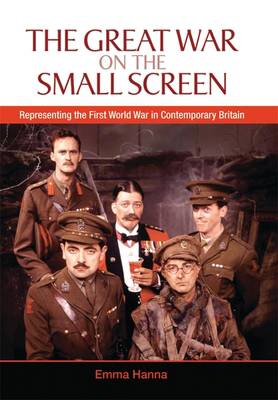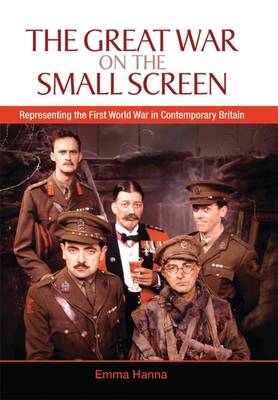
Bedankt voor het vertrouwen het afgelopen jaar! Om jou te bedanken bieden we GRATIS verzending (in België) aan op alles gedurende de hele maand januari.
- Afhalen na 1 uur in een winkel met voorraad
- In januari gratis thuislevering in België
- Ruim aanbod met 7 miljoen producten
Bedankt voor het vertrouwen het afgelopen jaar! Om jou te bedanken bieden we GRATIS verzending (in België) aan op alles gedurende de hele maand januari.
- Afhalen na 1 uur in een winkel met voorraad
- In januari gratis thuislevering in België
- Ruim aanbod met 7 miljoen producten
Zoeken
The Great War on the Small Screen
Representing the First World War in Contemporary Britain
Emma Hanna
Hardcover | Engels
€ 201,45
+ 402 punten
Omschrijving
In Britain since the 1960s television has been the most influential medium of popular culture. Television is also the site where the Western Front of popular culture clashes with the Western Front of history. This book examines the ways in which those involved in the production of historical documentaries for this most influential media have struggled to communicate the stories of the First World War to British audiences. Documents in the BBC Written Archives Centre at Caversham, Berkshire, the Imperial War Museum, and the Liddell Hart Centre for Military Archives all inform the analysis. Interviews and correspondence with television producers, scriptwriters and production crew, as well as two First World War veterans who appeared in several recent documentaries provide new insights for the reader.Emma Hanna takes the reader behind the scenes of the making of the most influential documentaries from the landmark epic series The Great War (BBC, 1964) up to more recent controversial productions such as The Trench (BBC, 2002) and Not Forgotten: The Men Who Wouldn't Fight (BBC, 2008). By examining the production, broadcast and reception of a number of British television documentaries this book examines the difficult relationship between the war's history and its popular memory.
Specificaties
Betrokkenen
- Auteur(s):
- Uitgeverij:
Inhoud
- Aantal bladzijden:
- 200
- Taal:
- Engels
Eigenschappen
- Productcode (EAN):
- 9780748633890
- Verschijningsdatum:
- 20/10/2009
- Uitvoering:
- Hardcover
- Formaat:
- Genaaid
- Afmetingen:
- 157 mm x 236 mm
- Gewicht:
- 703 g

Alleen bij Standaard Boekhandel
+ 402 punten op je klantenkaart van Standaard Boekhandel
Beoordelingen
We publiceren alleen reviews die voldoen aan de voorwaarden voor reviews. Bekijk onze voorwaarden voor reviews.









